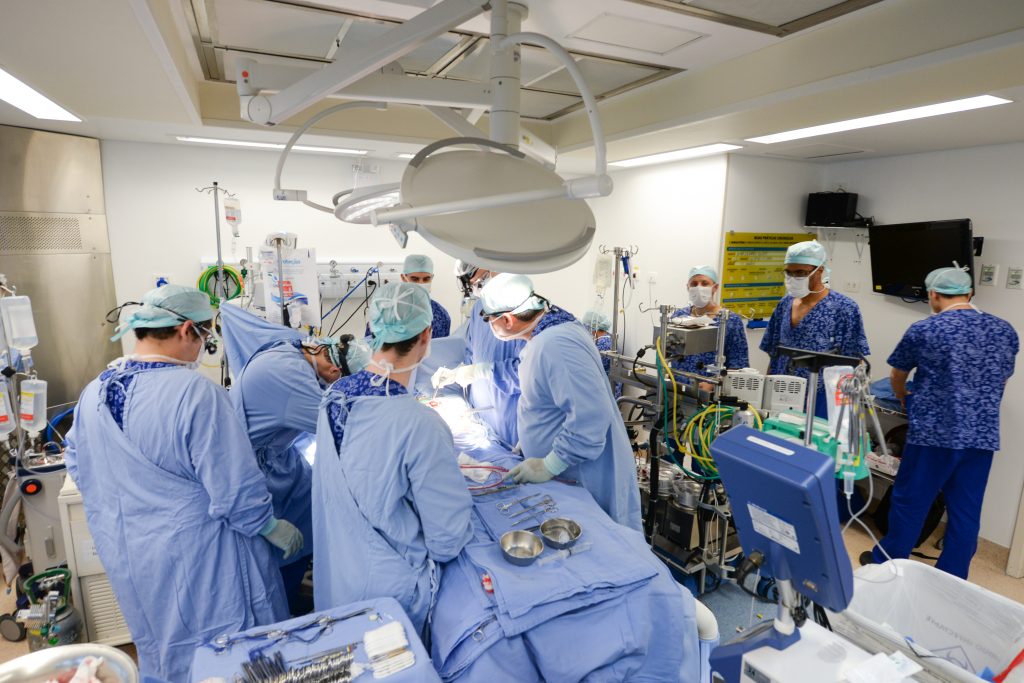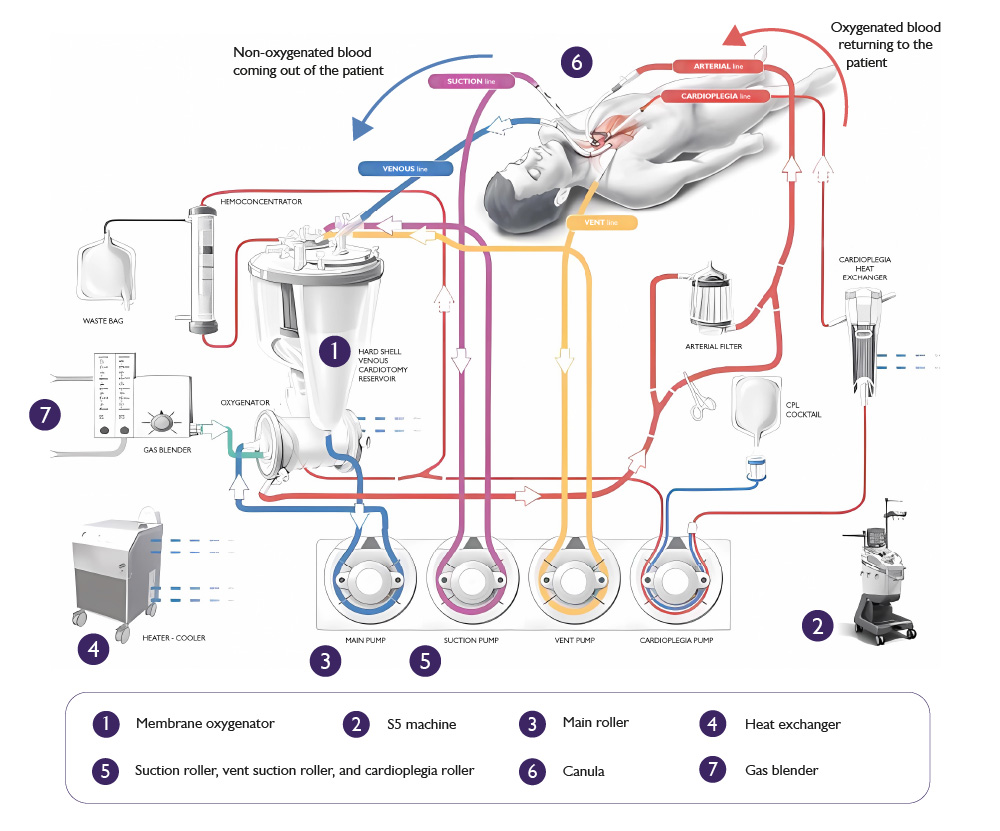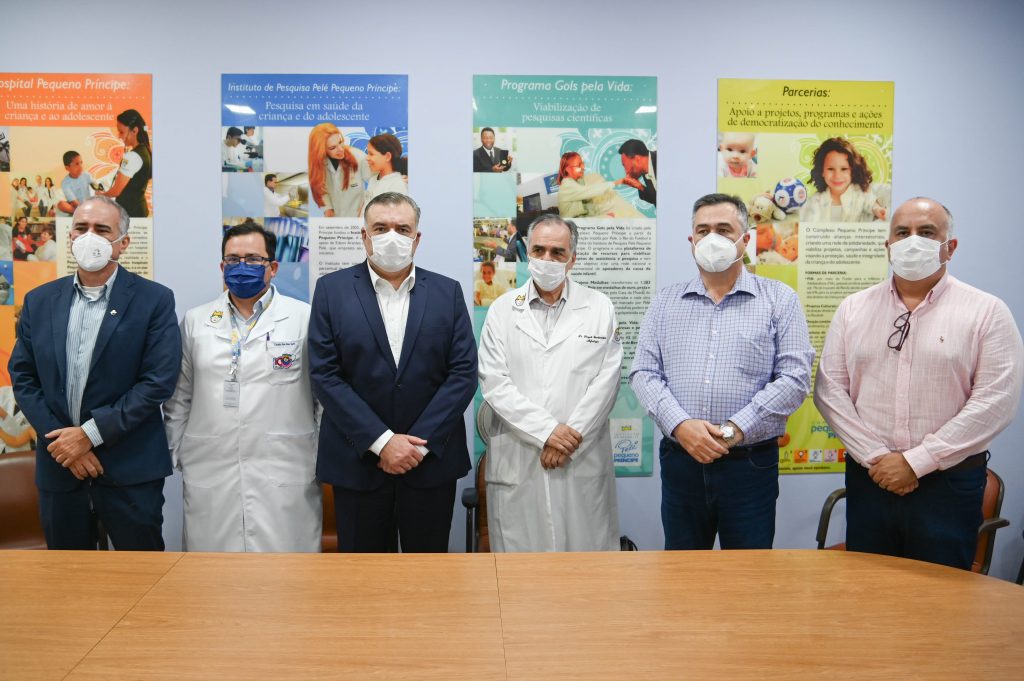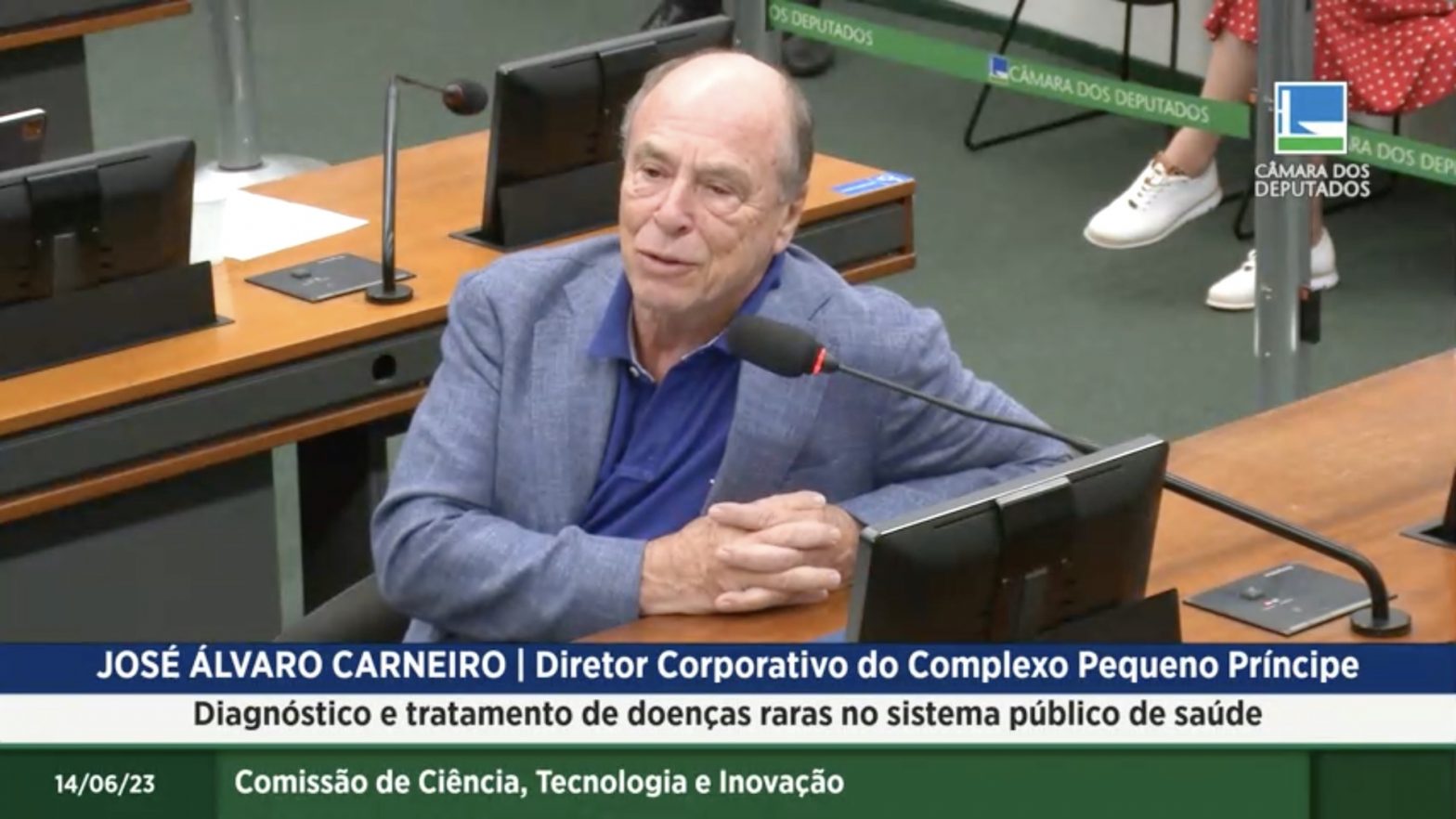New equipment for cardiopulmonary bypass increases the safety of cardiac surgeries
State-of-the-art machines widely used in the United States and Europe were acquired by Pequeno Príncipe with funds donated by the State Government
The Pequeno Príncipe Hospital acquired two new cardiopulmonary bypass machines, model S5 HLM (heart-lung machine), widely used in the United States and Europe. One of the most modern machines on the market, the model complies with the recommendations of the Brazilian Society of Cardiovascular Surgery (SBCCV, abbreviation in Portuguese) and the Brazilian Society of Extracorporeal Circulation (SBCEC, also in Portuguese), and has been in use since June.

“We need to work with ever more precision and technology. The replacement of this equipment makes it possible for medical procedures to be carried out with greater safety and better results,” explains the technical director of Pequeno Príncipe, Donizetti Dimer Giamberardino Filho. The Hospital is the third Brazilian institution to purchase this equipment for use in pediatrics and the only one in the Southern region of Brazil.
But do you know what a cardiopulmonary bypass is?
It is a procedure that consists of temporarily replacing the heart and lungs with a machine during complex heart surgeries.
The patient’s deoxygenated blood is diverted to this machine, where it is reoxygenated and pumped back into the body, as shown in the figure below.
Currently, more than 80% of cardiac surgeries use cardiopulmonary bypass, which can also be used in intracardiac surgeries or organs transplants.
The professional qualified to operate the cardiopulmonary bypass machine is the perfusionist.

Why is new equipment important?
According to cardiovascular surgeon of Pequeno Príncipe, Fábio Navarro, the new machines have a great deal of technical advantages that may even benefit surgeries in newborn babies. Among the distinctive features are:
- Sound and visual alarm system, which detect bubbles and control blood level and temperature, important to avoid complications such as embolisms;
- Blood temperature control is essential, as it allows better preservation of vital organs, such as the brain. In the machine, it is done by means of a high-performance external heat exchanger and precise sensors for temperature monitoring;
- Extremely accurate roller pump calibration system, reducing damage to blood cells, preserving blood quality;
- Continuous blood monitoring every six seconds;
- High-precision electronic gas blender (gas mixer), which ensures the ideal mix between gases for high-quality oxygenation in the blood system during the cardiopulmonary bypass.
With all these technical advantages, the use of new machines can favor a faster recovery and reduce the risks of complications and mortality in more complex surgeries.

More
The Research Institute team is part of a national pediatric oncology research network
Mobilized by the Ministry of Science, Technology, and Innovation, the network will act to contribute to the increase in childhood cancer cure rates
Pequeno Príncipe Neurology Service completes 40 years
The institution has one of the most complete services in Brazil in the field of pediatrics
Director of Pequeno Príncipe advocates more resources for the treatment of rare diseases
The breakthrough achieved by medicine from genomics can provide improvements in diagnosis and treatment, but costs are still a challenge









